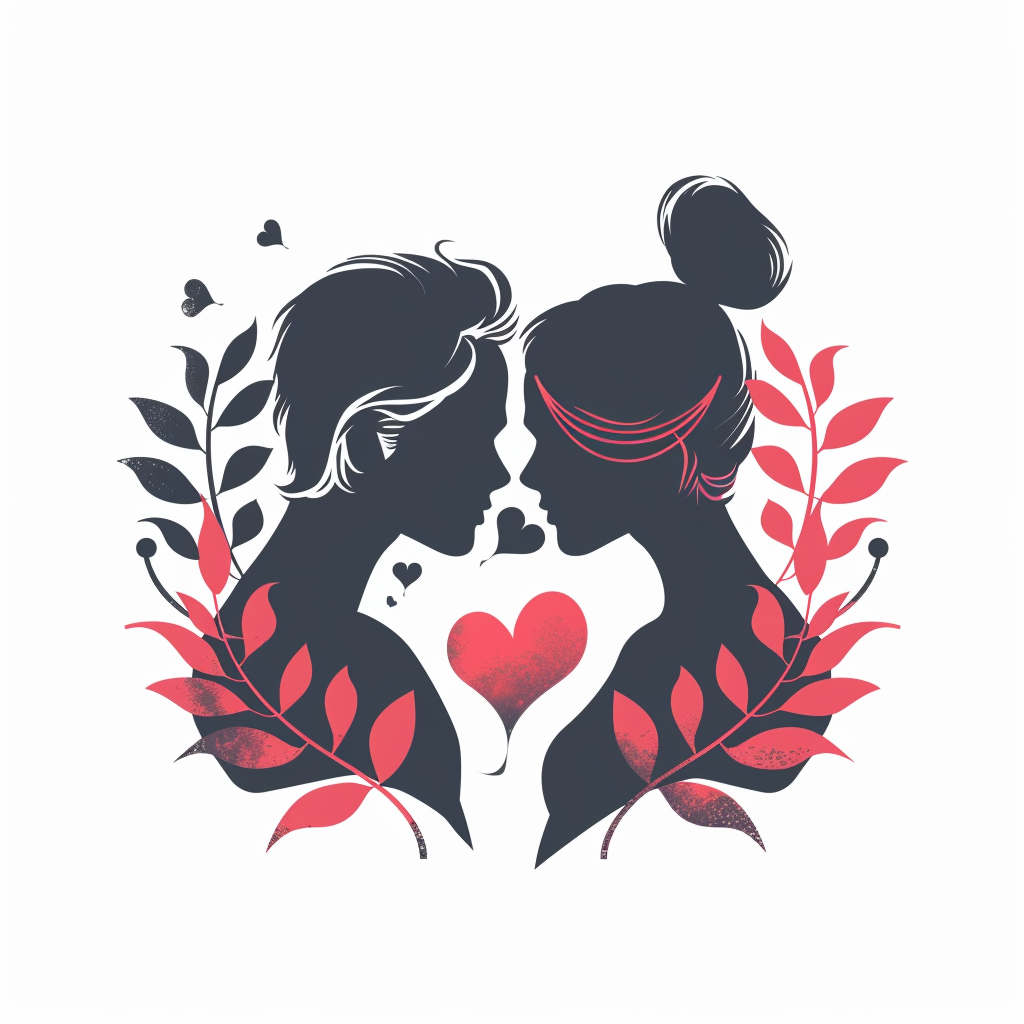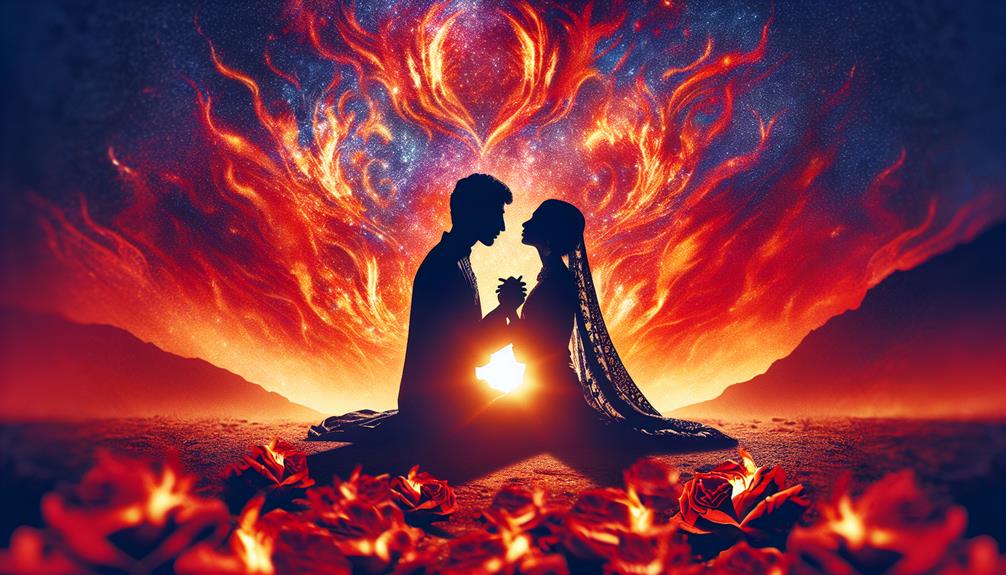Erotic Poetry Expressing Desire Through Verse
Erotic poetry has long been a powerful medium for individuals to convey their deepest desires and passions in a refined and artistic manner.
Erotic Poetry Expressing Desire Through Verse
From ancient civilizations to modern-day writers, the exploration of sensuality through verse has captivated audiences and sparked discussions on the complexities of human emotion and intimacy.
Erotic Poetry Expressing Desire Through Verse
By delving into the rich history of erotic poetry, one can uncover the various techniques used to evoke desire and create vivid imagery that resonates with readers across cultures and time periods.
Erotic Poetry Expressing Desire Through Verse
Key Takeaways
- Erotic poetry embodies themes of love, passion, and sensuality throughout history.
- Crafting sensual imagery involves sensory language, metaphors, and symbolism for depth.
- Erotic poetry explores human relationships, intimacy, vulnerability, and profound emotions.
- Prominent poets like Sappho, Lord Byron, and Anaïs Nin have made lasting contributions to the genre.
The History of Erotic Poetry
Throughout the centuries, erotic poetry has held a prominent place in literary traditions, reflecting the evolving attitudes towards sexuality and desire. Dating back to ancient civilizations such as the Greeks and Romans, poets like Sappho and Ovid embraced themes of love and passion in their verses, setting the stage for the exploration of eroticism in poetry.
Erotic Poetry Expressing Desire Through Verse
In the Middle Ages, poets like Petrarch continued this tradition, weaving sensual imagery into their works while also delving into the complexities of human emotions.
Erotic Poetry Expressing Desire Through Verse
During the Renaissance, figures such as Shakespeare and John Donne further expanded the boundaries of erotic poetry, exploring themes of physical intimacy and emotional connection in their sonnets and verses. The Romantic era saw poets like Lord Byron and John Keats infuse their works with intense emotions and sensual language, captivating readers with their depictions of love and desire.
Erotic Poetry Expressing Desire Through Verse
In the modern era, poets continue to draw inspiration from the rich history of erotic poetry, exploring new ways to express and celebrate the complexities of human relationships through verse.
Erotic Poetry Expressing Desire Through Verse
Techniques for Crafting Sensual Imagery
Crafting sensual imagery in erotic poetry involves skillfully weaving together evocative language and vivid descriptions to evoke the senses and ignite the reader's imagination. To create a truly immersive experience for the reader, poets can employ various techniques:
- Sensory Language: Utilize words that appeal to the senses of sight, touch, taste, smell, and hearing to paint a vivid picture in the reader's mind.
- Metaphors and Similes: Compare the subject of desire to objects or experiences that evoke sensuality, enhancing the depth of the imagery.
- Symbolism: Infuse your poetry with symbolic elements that convey hidden meanings and add layers of sensuality to the imagery.
Exploring Themes of Love and Desire
To capture the essence of human emotions in erotic poetry, delving into themes of love and desire provides a profound exploration of the intricacies of passion and longing. Love, in its various forms, is a central theme in erotic poetry, encompassing romantic love, physical desire, and emotional connections. These themes evoke a sense of intimacy and vulnerability, drawing readers into the depths of human relationships and connections.
Let's take a closer look at how love and desire are portrayed in erotic poetry through the following table:
| Love and Desire in Erotic Poetry | ||||
|---|---|---|---|---|
| Themes | Description | Examples | Impact on Readers | Poems |
| Romantic Love | Deep affection and emotional connection | Shakespeare's sonnets | Evokes feelings of tenderness and devotion | "Sonnet 18" |
| Physical Desire | Sensual longing and passion | E.E. Cummings' works | Ignites primal desires and lust | "i carry your heart with me" |
| Emotional Connections | Intimacy and soulful bonds | Pablo Neruda's poems | Creates a sense of soulful connection | "Sonnet XVII" |
Exploring these themes allows poets to delve into the complexities of human relationships and articulate the profound emotions that accompany love and desire.
Famous Erotic Poets Throughout History
Renowned throughout literary history, numerous poets have gained acclaim for their mastery in capturing the essence of desire and passion through their evocative works of erotic poetry. These poets have left an indelible mark on the world of literature, captivating readers with their intimate and sensuous verses.
Here are three famous erotic poets who have made a lasting impact:
- Sappho: An ancient Greek poet known for her lyric poetry, Sappho's verses often explored themes of love and desire, particularly focusing on the beauty of women. Her work remains influential and revered for its emotional depth and vivid imagery.
- Lord Byron: A prominent figure in the Romantic movement, Lord Byron's poetry exuded a captivating sensuality and explored the complexities of passion and longing. His poems, such as 'She Walks in Beauty' and 'Don Juan,' continue to be celebrated for their eloquence and fervor.
- Anaïs Nin: A 20th-century writer known for her diaries and erotica, Anaïs Nin's bold and uninhibited exploration of desire challenged societal norms. Her poetic prose delved into the depths of human sensuality, pushing boundaries and inspiring a new generation of writers to embrace the erotic in literature.
The Impact of Erotic Poetry on Society
The exploration of desire and sensuality through erotic poetry has not only captivated readers throughout history but also sparked discussions on the societal impacts of such provocative literary expressions. Erotic poetry has the power to challenge societal norms, provoke thought on intimacy and relationships, and push boundaries of acceptability. While some may view erotic poetry as scandalous or inappropriate, others see it as a celebration of human desires and emotions.
| Pros of Erotic Poetry | Cons of Erotic Poetry |
|---|---|
| Promotes self-expression | Can be controversial |
| Celebrates human sensuality | May offend conservative views |
| Challenges societal norms | Risks misinterpretation |
| Sparks important discussions | Not suitable for all audiences |
Frequently Asked Questions
How Can One Effectively Incorporate Sensory Details Into Their Erotic Poetry?
When crafting poetry, incorporating sensory details can deepen the reader's connection to the emotions and experiences being conveyed.
By skillfully weaving in descriptions that appeal to the senses of sight, sound, touch, smell, and taste, a poet can create a vivid and immersive experience for the audience.
Sensory details not only enhance the imagery of the poem but also evoke strong emotions and create a more engaging and memorable piece of work.
Are There Any Taboo Topics or Boundaries That Should Be Considered When Writing Erotic Poetry?
When delving into the realm of writing, especially within the context of creative expression such as poetry, it is essential to navigate taboo topics and boundaries with sensitivity and awareness. While artistic freedom allows for exploration of diverse themes, it is crucial to consider ethical implications, cultural sensitivities, and individual comfort levels.
Respect for oneself and others, along with an understanding of the potential impact of one's words, should guide the delineation of boundaries in erotic poetry.
What Role Does Rhythm and Meter Play in Enhancing the Sensuality of Erotic Poetry?
Rhythm and meter are essential components of poetry that greatly influence the overall tone and flow of a piece.
In the context of enhancing sensuality in erotic poetry, rhythm and meter can create a heightened sense of intimacy and passion.
How Can One Navigate the Fine Line Between Eroticism and Objectification in Their Poetry?
When navigating the delicate balance between eroticism and objectification in poetry, it is crucial to prioritize respect and agency for all involved parties.
By focusing on mutual desire, consent, and empowerment, poets can create a space where sensuality is celebrated without diminishing the humanity of the subject.
Utilizing vivid imagery, nuanced language, and exploring themes of intimacy and connection can help to convey desire in a way that is both alluring and respectful.
Are There Any Contemporary Poets Who Are Pushing the Boundaries of Traditional Erotic Poetry?
In the realm of contemporary poetry, several poets are indeed pushing the boundaries of traditional erotic poetry. By exploring themes of intimacy, sensuality, and desire in innovative ways, these poets challenge conventional norms and offer fresh perspectives on the subject.
Through their unique voices and distinct styles, they contribute to the evolution of erotic poetry, inviting readers to engage with the complexities of human relationships and emotions in new and thought-provoking ways.
Conclusion
In conclusion, the exploration of desire and love through erotic poetry has a profound impact on society, allowing for the expression of emotions that are often deemed taboo.
Through the use of sensual imagery and themes, erotic poets throughout history have pushed the boundaries of societal norms, challenging readers to confront their own desires and emotions.
The power of erotic poetry lies in its ability to evoke passion and ignite a sense of longing within the audience.

